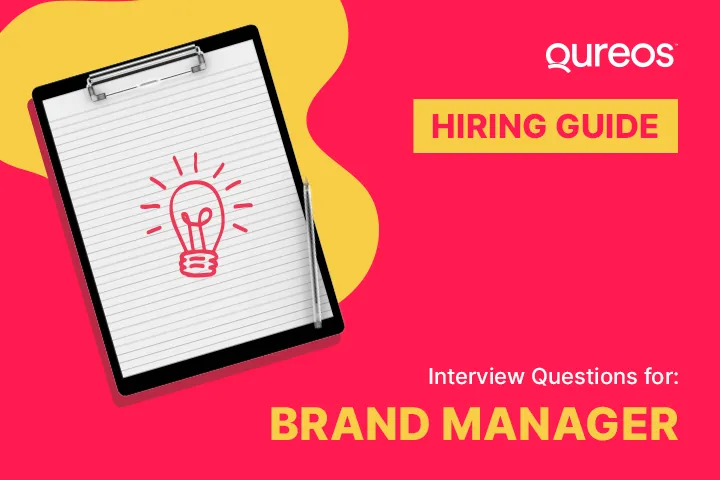Based on data from hundreds of hiring campaigns in Egypt, this report sheds light on what clients truly prioritize when hiring, covering roles, industries, experience levels, and sourcing methods. grounded in actual recruiter behavior, campaign results, and insights from the Qureos platform, not opinion-based trends. It will break down how clients in Egypt make hiring decisions, including their filters for candidates, preferred job roles, time-to-hire expectations, and common pain points.
Preferred Candidate Profiles
Clients in Egypt have specific preferences when it comes to candidate profiles. These include nationality, educational qualifications, language skills, and experience levels. Employers also often impose hard filters such as required years of experience or specific certifications.
What clients typically ask for:
Nationality preferences: Many employers prefer local talent to comply with Egypt’s national employment laws and quotas. However, for specialized roles, expatriate candidates are often sought after.
Educational background: A degree in IT, business, engineering, or relevant technical fields is commonly required.
Language proficiency: English and Arabic fluency are often mandatory, especially for roles in finance, IT, and management.
Explore more: Employment of Women and Juveniles in Egypt
Top Roles and Functions in Demand
Hiring trends in Egypt show that there are key roles which clients consistently seek, across industries like IT, manufacturing, healthcare, and logistics. Certain seasonal roles see higher demand during specific periods of the year, while others remain constant year-round.
Most requested job titles by industry
IT: Software developers, network administrators, and IT support technicians
Manufacturing: Machine operators, production staff, and quality control personnel
Healthcare: Medical staff, lab technicians, and pharmacists
Logistics: Supply chain managers, warehouse staff, and distribution coordinators
Seasonal vs year-round hiring trends
Certain industries, such as retail and logistics, may have an increase in demand during peak seasons (e.g., holidays or sales periods), whereas industries like manufacturing and healthcare maintain year-round recruitment needs.
Qureos Insight: In Q1, 40% of all hiring campaigns in Egypt focused on IT support, operations, and customer service roles.
Explore more: Leaves in Egypt
Nationality and Localization Preferences
In Egypt, employers often specify their preference for local versus expat talent. Local hiring is prioritized to comply with nationalization policies, such as Egyptianization. However, expats are frequently needed for specialized positions that require expertise not readily available in the local market.
Local vs expat hiring preferences
Employers in Egypt value local candidates to meet government policies and ensure long-term employment. However, for technical and senior roles, expat candidates with the right skills are often considered.
Nationalization quotas
Programs like Egyptianization aim to increase local workforce participation, especially in government and large private sector companies. Companies are encouraged to prioritize local talent, though they are allowed to hire expats when specialized skills are needed.
Cultural fit and visa status
Cultural compatibility is often a key factor for employers, especially in customer-facing or managerial roles. Visa status also plays a significant role in the selection process, especially when hiring foreign talent.
Qureos Insight: 1 in 3 employers in Egypt filter candidates based on nationality requirements, driven by nationalization goals.
Explore more: Working Hours in Egypt
Soft Skills and Red Flags Clients Care About
Clients in Egypt care deeply about both technical and soft skills. Soft skills such as communication, reliability, and the ability to work under pressure are highly valued. Employers also look for candidates who demonstrate professionalism and consistency.
Top soft skills requested
- Strong communication skills
- Problem-solving abilities
- Team collaboration and adaptability
Red flags leading to immediate rejection
Job hopping: Employers in Egypt often reject candidates who frequently change jobs without a clear reason.
Unclear CVs: A disorganized or incomplete CV makes it difficult for employers to assess qualifications accurately, leading to immediate rejection.
Employer hesitation around remote work: While remote work is becoming more accepted, employers in Egypt still have concerns about candidates with significant freelance or remote-only work experience, especially for roles that require in-office presence.
Qureos Insight: Candidates with a stable work history and clear, concise CV formatting get 3x more recruiter responses in Egypt.
Explore more: Termination in Egypt
Preferred Hiring Models
The preference for hiring models in Egypt varies depending on the role and industry. While many employers prefer permanent roles for long-term positions, contract-based and freelance hiring is becoming more common for short-term, specialized projects.
Permanent vs contract vs freelance
Permanent roles: These are preferred for key roles in sectors such as finance, healthcare, and manufacturing.
Contract/freelance roles: Often used for short-term projects in IT, marketing, and consultancy roles where specific expertise is required temporarily.
Volume hiring vs specialized roles: Employers in Egypt who need to fill positions in large manufacturing plants or warehouses tend to focus on volume hiring, while companies in fields like IT or finance prefer specialized, highly skilled professionals.
Qureos Insight: Contract-to-hire models are particularly popular for blue-collar roles in Egypt, where employers often prefer to assess candidates' fit before offering permanent positions.
Explore more: Visa and Work Permit in Egypt
Turnaround Expectations and Time-to-Hire
Employers in Egypt typically have high expectations when it comes to turnaround time. While urgent hiring needs may require quick responses, companies hiring for specialized or senior roles can afford a longer recruitment process.
How quickly clients expect candidates
In fast-paced industries like FMCG and logistics, employers typically expect shortlisted candidates within 48–72 hours of posting a job. However, for senior or specialized positions, the recruitment process tends to be slower, often involving multiple interview rounds and extended candidate evaluations. Clients in fast-moving sectors such as retail and manufacturing generally have little patience for delays in the interview process, while companies hiring for more senior roles may be more flexible with their timelines.
Qureos Benchmark: Most clients in Egypt expect to receive shortlisted candidates within 48–72 hours of job posting.
Explore more: Employment Contracts in Egypt
Common Client Pain Points in Hiring
Common complaints from clients in Egypt revolve around unqualified applications, lack of local talent, and slow recruiter response times. These issues can seriously impact the recruitment process and client trust.
Top complaints
Unqualified applications:
Many employers are frustrated by receiving applications that don't meet the required qualifications or experience.
Lack of local talent:
Finding local candidates with specialized skills remains a significant challenge.
Slow recruiter response time:
Delays in candidate sourcing and communication can negatively affect the hiring process.
How these frustrations affect client loyalty
These pain points often lead to clients switching recruitment partners. Employers want to work with agencies that can provide high-quality candidates quickly and efficiently.
Qureos Insight: Qureos solves these issues by using smart filters and pre-vetted shortlists, ensuring faster and more accurate candidate matches.
Explore more: Employee Onboarding Process in Egypt
Conclusion
Hiring preferences in Egypt are structured and highly specific. Understanding these preferences, whether it's the need for speed, the importance of cultural fit, or the demand for specific skills, is key for recruiters to succeed. Ignoring these patterns can lead to poor hires and loss of client trust. By using platforms like Qureos, recruiters can match client expectations faster and more effectively.
{{tool-egy="/sandbox/home-v3"}}




